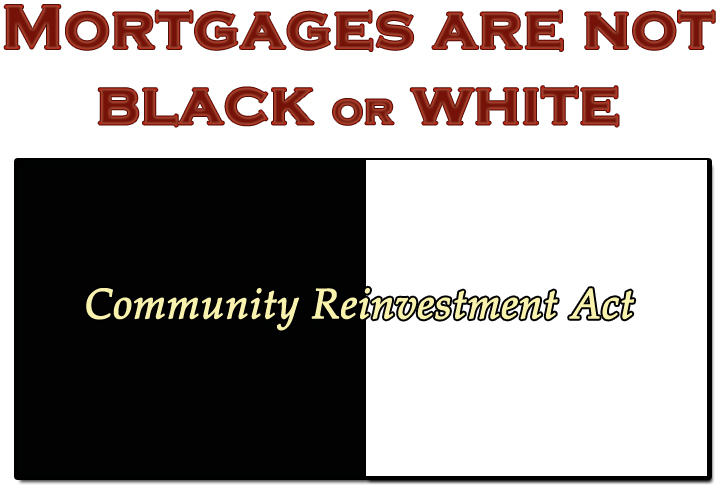For many Olympic athletes it’s not about the money, it’s about chasing the dream, representing a country and standing on the podium.
 Maybe it’s just me but I really could care less when the NHL lockout comes to an end. I think both sides make a good case why their position is the right one but if the NHL was to cancel the entire season it would have zero impact on my life. I used to be a sports junkie, and I do enjoy sporting events. But the love of the game for it’s purity has long since passed for me. The naivete that the owners and players should do what’s best for the game is best left for those who refuse to believe that professional sport is business, big business.
Maybe it’s just me but I really could care less when the NHL lockout comes to an end. I think both sides make a good case why their position is the right one but if the NHL was to cancel the entire season it would have zero impact on my life. I used to be a sports junkie, and I do enjoy sporting events. But the love of the game for it’s purity has long since passed for me. The naivete that the owners and players should do what’s best for the game is best left for those who refuse to believe that professional sport is business, big business.
I can’t think of a bigger business than the business of the Olympics. Multiple billion of dollars in revenues, along with envelopes full cash being passed under tables. That just screams sporting innocence doesn’t it? In spite of the Olympic machine you can’t help but marvel at the athletes who participate, setting aside NHL and NBA pros. For many Olympic athletes it’s not about the money, it’s about chasing the dream, representing a country and standing on the podium. Thanks to an industry colleague, Brian Nason, I was reminded that within the business of sports there can be purity for the love of the sport. I would like to introduce you to Larisa Yurkiw. Frankly, I never heard of Larisa until Brian reached out to me to assist in his efforts to support Larisa. According to Brian, Larisa is good people, who comes from a good family. I don’t know Larisa, I’ve never met her but I can say this, she’s got guts and she has the heart of a champion. All she wants is another shot at the Olympics, and a chance to represent Canada. You have an opportunity to give her a hand up to the podium. Please have a look at the video, if for no other reason than to remind yourself that the purity of sports still exists.
Until next time,
Cheers.
Read More Add a Comment“Maintaining the status quo for America is not an option for the global economy, more specifically for Canada.”
Now that Americans have decided to maintain the status quo, high unemployment rates, mounting debt, failing economy and political gridlock, the only question remains – How does the election result impact Canada? Unfortunately the American Presidential election is not something we can simply dismiss by saying “it’s their business, not ours”; our business is impacted by who and what party America elects.
In Canada, the Harper government did what it was supposed to do, they, stayed out of it and keep their opinions to themselves. Not easy to do considering how intertwined our economies are but we’re the junior partner in this relationship and we have to tread lightly. It didn’t take long for both Prime Minister Harper and Finance Minister Jim Flaherty to issue statements that maintaining the status quo for America is not an option for the global economy, more specifically for Canada. Here’s how Prime Minister sugarcoated it, “The U.S. has taken many aggressive and ambitious measures on its financial system but we’re now facing the fiscal cliff situation in the American political system in the next couple of months. That’s a big uncertainty.” Finance Minister Jim Flaherty was more direct, “Of course we’re worried because it would mean — were the entire fiscal cliff risk to come to reality, there would be the effect on U.S. GDP — according to the Americans themselves — would be four to five per cent, which would put the U.S. economy into recession quite quickly, and the Canadian economy would follow shortly thereafter, and would have significant effect on the global economy. So this is all very serious, and we hope our American colleagues move forward to a resolution promptly.” No ambiguity there. The stakes are high and it’s hard to imagine that both Democrats and Republicans would be willing to drag their economy, and subsequently ours, into another recession for ideological reasons. Then again I wouldn’t bet on them doing the right thing for the greater good either.
Obama’s reelection probably means that Fed Chairman Ben Bernanke stays on the job when his term expires. The Republicans made it very clear they were displeased with Bernanke, and the role that the Treasury plays as it relates to monetary policy. Bernanke willingly or unwillingly helped Obama out during the campaign with the introduction of QE3, quantitative easing, which helped to boost economic data over the last two months of the campaign. If Bernanke stays on the job we can expect rates to stay at historical lows until Q3 of 2014. As I’ve stated before, if you want some indication as to where rates are going in Canada, see what the Fed Chairman is doing.
So, our government is concerned about the fiscal mess the Americans are in, rates are not going up in the mid-term, no indication if Obama is going to change his position on the Keystone Pipeline, looks like not much has changed. For our sake let’s hope the President is willing to move to the center and work with Republicans on the “Bush” tax cuts and budget. The pragmatist in me believes it may happen given the President doesn’t have to pander to his base anymore; he’s never running for office again. The pessimist in me takes over when I consider the President has never made an attempt to move to the center, even after the Democrats lost their majority in Congress in 2010. That should be worrisome for all of us because we all have skin in this deal.
Until next time,
Cheers.
Read More Add a Comment
“The question on the mortgage application asked “Are you Caucasian, African American, Latino, Asian, Native American or Other?” My initial reaction was shock, but then it dawned on me why I was being asked this question… Now there’s a recipe for responsible lending.”
My blog last Tuesday, “Honouring a Canadian Hero”, referenced the failed Presidency of Jimmy Carter. As stated, I do not believe history will be kind to Jimmy Carter and his legacy and defining moment will forever be the American Embassy hostage crisis in Iran. The final act of humiliation for Carter was when the Iranians only agreed to release the hostages after Ronald Regan’s inauguration. Regan negotiated a deal for oil with the Iranians, and he w as responsible for the hostages being released. I think it would be a challenge, even for President Carter’s most ardent supporters, to make a case that he was an effective Commander and Chief. What about as a legislator? Once piece of legislation the President Carter signed into law was what I believe was the genesis of the mortgage meltdown.
as responsible for the hostages being released. I think it would be a challenge, even for President Carter’s most ardent supporters, to make a case that he was an effective Commander and Chief. What about as a legislator? Once piece of legislation the President Carter signed into law was what I believe was the genesis of the mortgage meltdown.
In 1977, President Carter signed into law the Community Reinvestment Act. The law was designed to force banks to meet the needs of borrowers in all communities, with a focus on moderate and low-income neighbourhoods. The belief at that time was that the banks were discriminating against moderate and low-income neighbourhoods. To remedy this, Crater and Congress passed a law requiring banks to ensure that moderate and low-income borrowers (in those days was code for “non-qualified”) would be able to get a mortgage. The new law armed regulators with the authority to block bank mergers and expansion if they were deemed to be non-compliant. The Community Reinvestment Act stated banks were not required to make high risk loans, however, the penalty for not doing so could impede a bank’s ability to grow and create value for its shareholders; dilemma, dilemma.
The truth is that after many years of the law being enacted, regulators exercised caution when disciplining banks for non-compliance of the Community Reinvestment Act. But that all changed when William Jefferson Clinton became President. An amendment to the Act was made requiring Fannie Mae and Freddie Mac, two government agencies, to securitize mortgages for those borrowers who were moderate or low-income borrowers. Also, the regulators were instructed to enforce the law. No more ambivalence, no more looking the other the other way. Upon audit if a bank was found to be non-compliant with the Community Reinvestment Act, the banks’ ability to grow would be impeded by the government, period. Oh, but it got even better. Social and community groups were encouraged to file complaints if they believed a bank was not in compliance with the Community Reinvestment Act. It got to the point where some banks were paying off – pardon me – making significant dollar contributions to community groups to not file a complaint. These community groups gladly accepted the “donations” from the banks with the understanding that banks still had to fund “X” dollars in mortgages in moderate and low-income communities. Under Clinton, the banks had to find ways to do non-qualified loans but now they could securitize these loans and get if off their balance sheet. Now there’s a recipe for responsible lending.
I got a firsthand look at the folly of this Act. For a short period of time I had a mortgage in the U.S. I will never forget one of the questions on the mortgage application. The question was, “Are you Caucasian, African American, Latino, Asian, Native American or Other?” My initial reaction was shock, but then it dawned on me why I was being asked this question. The criteria to qualify would depend on how I answered that question. The Department of Housing and Urban Development (HUD) requires lenders to collect this data to ensure equal lending practices, and the Community Reinvestment Act ensures that those who would not normally qualify for a mortgage, do. Can you imagine having to ask that question here in Canada? Now, is it any wonder that we weathered the meltdown so much better than our neighbours to the South? Lending in Canada is not based on racial quota, it’s based on qualifying. I’ve said it before and I will say it again, the mortgage meltdown was the result of irresponsible behaviour that boarded on criminal by some. However, if fingers are going to be pointed at those responsible for the mortgage meltdown then historical perspective is required. The Community Reinvestment Act provided the kindling, newspaper, butane and matches; Wall Street set it ablaze.
Tonight Americans decide who their next President will be. I’m struck by the parallels between the Carter and Obama era. Both had no answer for a failing economy. During both administrations the American psyche was and currently is extremely fragile. Under both administrations the future brought little hope. Both administrations had to deal with an embassy crisis. Both blamed their predecessors for the state the economy at re-election. It didn’t work for Carter and tonight we will learn if it worked for Obama.
Until next time,
Cheers.
Read More Add a CommentSo… we’ll have to depend on the global economy to make up for the negative impact that a slowing Canadian real estate market will have on our economy?
Where are they hiding? They weren’t bashful about sharing their opinion when they were telling the Government to cool down the real estate sector. The real estate industry was the apple of every headline seeking expert’s eye. Government must act now…our economy is at risk…for the love of all things holy please save mankind from the evils of real estate. Funny watching the outcome – the government acted, the market dropped by 15 per cent and now those who demanded government action are now all of sudden too busy to comment.
 There was a good article written by Michael Babad in the Globe yesterday titled “Careful What You Wish For”. The article refers to a new report from Avery Shenfeld, Chief Economist for CIBC. I won’t regurgitate the facts but the gist of the article is that slowing down the real estate sector could end up having a far reaching impact on the Canadian economy. Pleads from the minority, like CAAMP, cautioning the government not to over reach for fear of exactly what CIBC is now saying maybe should have been heeded. Here’s a quote I found interesting from CIBC’s report, “In 2013 an economic acceleration looks unlikely absent a new source of growth to fill in housing’s gap. That makes it even more urgent that the global economy is healthier come 2014, when the full bite of a housing slump on domestic activity will be felt. Until that’s a sure bet, policy makers will be cautious about pouring more cold water on the housing sector through further changes in mortgage insurance or higher interest rates.” So we’ll have to depend on the global economy to make up for the negative impact that a slowing Canadian real estate market will have on our economy? But we should all take solace in the fact that Shenfeld doesn’t believe the government will do anything to slow down the market further. I wonder what the magic number is? A 15 per cent drop is acceptable but 20 per cent or greater is unacceptable?
There was a good article written by Michael Babad in the Globe yesterday titled “Careful What You Wish For”. The article refers to a new report from Avery Shenfeld, Chief Economist for CIBC. I won’t regurgitate the facts but the gist of the article is that slowing down the real estate sector could end up having a far reaching impact on the Canadian economy. Pleads from the minority, like CAAMP, cautioning the government not to over reach for fear of exactly what CIBC is now saying maybe should have been heeded. Here’s a quote I found interesting from CIBC’s report, “In 2013 an economic acceleration looks unlikely absent a new source of growth to fill in housing’s gap. That makes it even more urgent that the global economy is healthier come 2014, when the full bite of a housing slump on domestic activity will be felt. Until that’s a sure bet, policy makers will be cautious about pouring more cold water on the housing sector through further changes in mortgage insurance or higher interest rates.” So we’ll have to depend on the global economy to make up for the negative impact that a slowing Canadian real estate market will have on our economy? But we should all take solace in the fact that Shenfeld doesn’t believe the government will do anything to slow down the market further. I wonder what the magic number is? A 15 per cent drop is acceptable but 20 per cent or greater is unacceptable?
Seeing how we’re going to have to depend on the global economy to make up for the slowing real estate market we had all better keep on eye what’s happening in other parts of the world. Not sure if we should feel warm and fuzzy depending on Greece, Italy, Spain, China and the U.S. The Fed’s were in a tough spot and there’s no way they could predict, with one hundred per cent accuracy, the exact level of the slowdown. But in less than three months of the most recent changes to the mortgage rules there are signs they may have over reached; if that proves true there could be repercussions for the Fed’s, like contributing to Justin Trudeau mania.
Related Posts:
BOC Leaves Target Rate “As Is”
Canada Housing: Correction vs. Bust – Let the Finger Pointing begin
Bank of Canada still locked with the US Fed?
Real Estate & Mortgage Industry: The Margin Battle
Until next time,
Cheers.
Read More Add a Comment